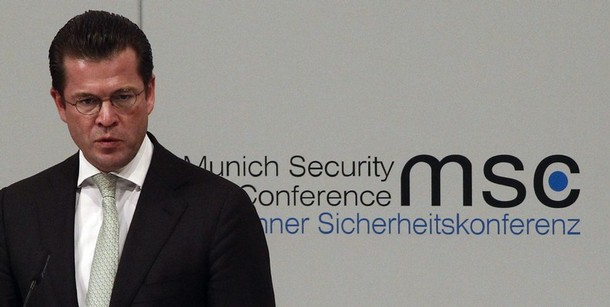
From Michael Birnbaum, the Washington Post: [S]ome top officials, including the U.S. defense secretary and the NATO secretary general, worry that the changes could burden the United States by reducing the number of European troops available for NATO missions and other military efforts around the world. NATO’s ability to function as a collective defense pact may be hobbled, they say.
The depth of the concerns was on display at a security conference in Munich this month, where instead of talking about Egypt – the situation at the forefront of many American minds – Germany’s defense minister, Karl-Theodor zu Guttenberg, gave an impassioned speech defending his cuts. The NATO secretary general, Anders Fogh Rasmussen, followed by warning that the budget decreases across the continent could have dire consequences.
"If the cuts are too deep, we won’t be able to defend the security on which our democratic societies and prosperous economies depend," Rasmussen said. "We risk a Europe increasingly adrift from the United States. …"
Sweden eliminated the draft last summer and has reduced the number of recruits it takes in annually by more than half. The Netherlands announced plans in November to cut the number of workers in its Defense Ministry by almost 15 percent. Italy has also unveiled plans to cut military spending.
Some analysts say that without increased coordination among European countries about how to make the reductions, they risk increasing their dependence on the United States for defense.
"I’m afraid when the smoke clears after Afghanistan in a few years and people look at what capabilities they have left, they’re going to do less with less," said Daniel Fata, a former U.S. Defense Department official who now works for the consulting firm run by former defense secretary William Cohen.
Fata said he was especially worried that countries such as Greece, Poland and the Baltic states would wind up with little ability to contribute to military ventures outside their borders, such as the joint NATO effort in Afghanistan, and that ultimately they wouldn’t be meaningful partners in defense pacts.
Defense Secretary Robert Gates has also expressed concern that European decreases would mean a greater reliance on U.S. troops during crises. (photo: Reuters)
Image: reuters%202%2015%2011%20Karl-Theodor%20zu%20Guttenberg.jpg

